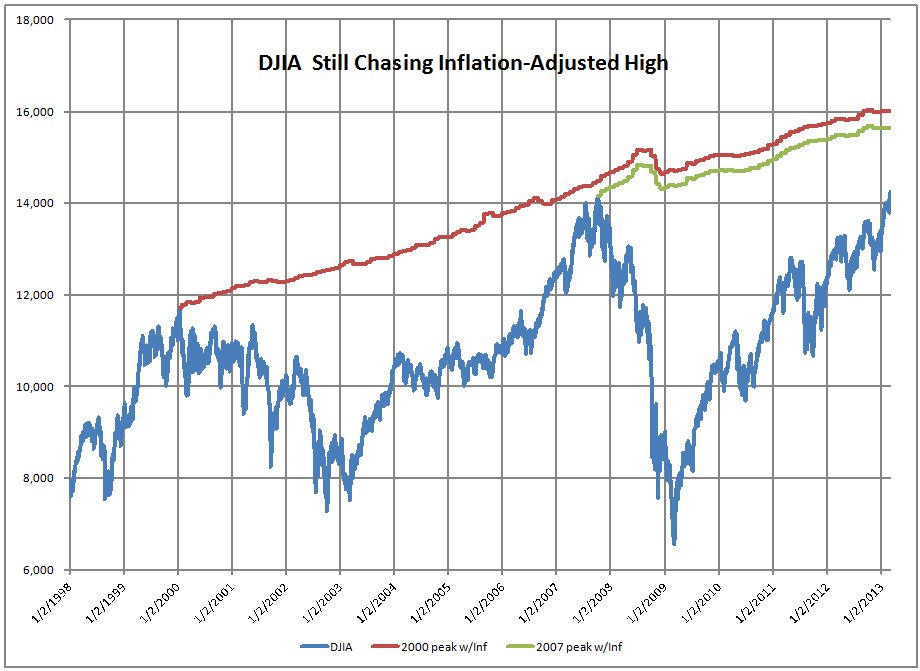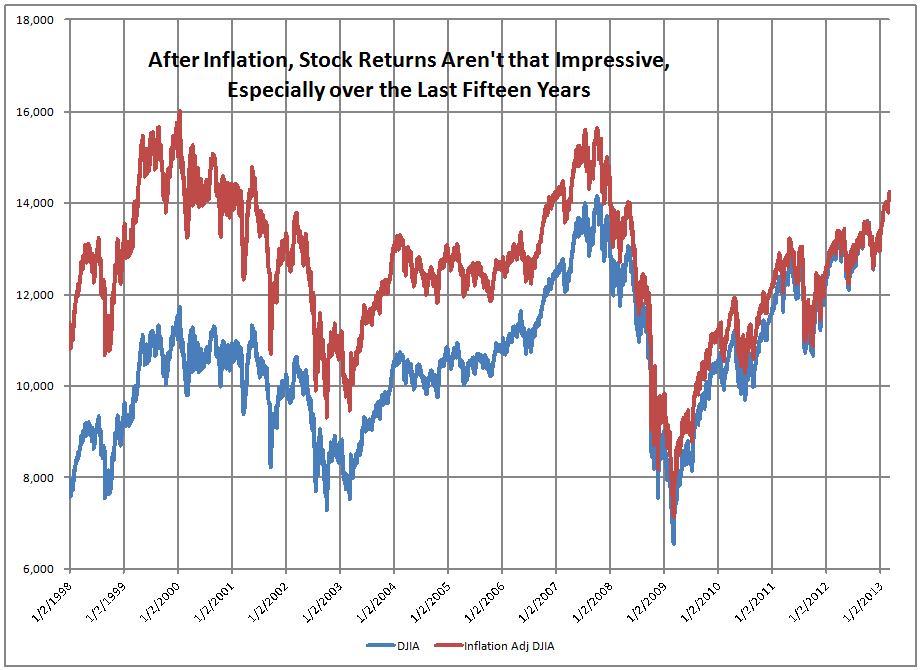None of this is to say don’t invest in stocks. Nor is it to say a bubble has formed, like the technology boom of the late 1990s and the housing-fueled run-up of the mid-2000s. The evidence may even point in the opposite direction on this score: The price-to-earnings ratio — what it costs to buy a dollar of a company’s profit — for stocks in the Standard & Poor’s 500 Index is 16 percent below the level at the end of 2009.Sorry, but that’s not true, the Dow is still 12 percent below the inflation-adjusted all-time high hit on Jan. 14, 2000. Have a look at this graph:
The same goes for the Dow, which has more than doubled in four years, yet its valuation is 15 percent below the 20-year average. When adjusted for inflation, moreover, the Dow is still 9 percent below the previous all-time high hit on Oct. 9, 2007. In other words, stocks are still a bargain, historically speaking. [Emphasis mine]

People forget how badly the DJIA, much less the S&P or NASDAQ overshot in 2000 from tech speculation and loose monetary policy from the Fed to cover for Y2K.
Here’s another graph to express the same idea:

Yes, there may have been a ~2% dividend over the last fifteen years, so the DJIA with dividends beat inflation by a little. Bonds did a lot better.
All I want to say is that there is little reason for excitement over new nominal highs in the DJIA. Also, it is a weird average, and gives IBM too much weight. There is a better way to create a megacap index as I pointed out in the prior link.
So take a chill pill, and realize that the DJIA is a weird index, still behind inflation-adjusted highs, at a time when profit margins are at all time highs. This is not sustainable, and long-term valuation measures like the Q-ratio and CAPE10 indicate a market 20% or so overvalued.
So to all I say take defensive measures. Of course things can go higher, but markets were a lot lower in 2002 than in 1999.

No comments:
Post a Comment